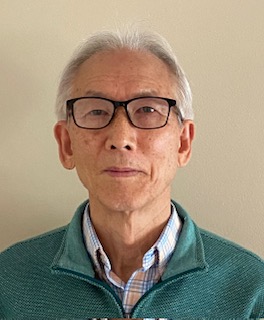Dr. Bong-Choul Hwang is a retired elder of the United Methodist Church and a scholar of theology and philosophy. He earned his Ph.D. from the University of Denver and Iliff School of Theology, where his dissertation, Process and Harmony: A Comparison between Whitehead and Fa-tsang Metaphysics on the Notion of Reality, explored the dialogue between Western process thought and Eastern Buddhist metaphysics. He holds an M.A. in Religion from Memphis Theological Seminary and advanced degrees in philosophy from Yonsei University, focusing on Heidegger’s existential ontology.
Dr. Hwang was born in Korea and later became a citizen of the United States. He currently resides in Illinois. An ordained elder of the United Methodist Church, Dr. Hwang served in full-time ministry until his retirement in 2014.

- Tell us about your call to ministry.
My call to ministry emerged early in my life and has been shaped by two key aspects: teaching and parish ministry. Teaching involves intellectual inquiry, theological reflection, and the formulation of doctrines that inform ecclesial life. Parish ministry, in turn, serves as a living expression of these theological insights, engaging with congregations and social contexts. I view these two dimensions as interdependent, each enriching the other.
Although I was drawn to academia, I committed myself fully to pastoral ministry, believing that theological reflection must be deeply connected to the lived experience of faith communities.
Since my retirement, my ministry has taken the form of writing, addressing existential and theological concerns for a broader audience. I believe that writing, much like preaching, serves as a means of theological engagement.
- How did your time at MTS influence the writing of your book?
My book, Heidegger’s Being and Time & Kierkegaard’s The Sickness unto Death as Hermeneutic to Paul’s Epistles, examines the existential nature of human beings through the lens of Heidegger’s Dasein, Kierkegaard’s concept of the self, and Paul’s theological anthropology (soma). Rather than merely comparing these thinkers, I use Heidegger’s and Kierkegaard’s frameworks to offer a deeper interpretation of Pauline theology, particularly concerning authenticity, sin, and redemption.
MTS played a formative role in shaping my theological and hermeneutical approach. My studies in Pauline theology, alongside courses in hermeneutics—particularly Schleiermacher’s interpretive methods—provided the foundation for my exploration of philosophical theology. My engagement with Schleiermacher’s Hermeneutics and my studies of Pauline epistles at MTS laid the groundwork for my later research.
Furthermore, the ecumenical and interdisciplinary ethos of MTS encouraged me to explore theology beyond rigid doctrinal boundaries. This openness has been crucial in my current work, which seeks to address contemporary existential concerns in dialogue with both classical theology and modern philosophy.
- What’s something you learned at MTS that still informs your work?
MTS fosters an environment of inclusivity and diverse theological engagement. Studying alongside students and faculty from various denominational backgrounds broadened my perspective and deepened my appreciation for theological dialogue.
This openness to diverse perspectives continues to inform my theological and philosophical inquiries. As John 3:16 reminds us, God’s love encompasses the entire world, urging us to embrace inclusivity in our faith and scholarship.
- Why should prospective students choose Memphis Theological Seminary?
When I first arrived at MTS as an international student, I felt like an outsider, grappling with language barriers and cultural adjustments. However, the warmth and support of the MTS community transformed my experience. Professors and fellow students became my mentors and friends, guiding me through both academic and personal challenges.
To any prospective student, especially those from international backgrounds, I would say: Do not fear the transition—MTS will be your family and your foundation.
